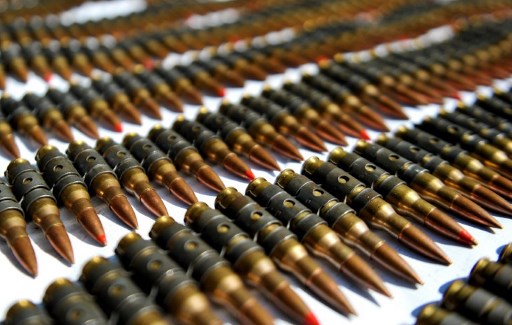
403
Sorry!!
Error! We're sorry, but the page you were
looking for doesn't exist.
Ukraine suffers from ammunition deficiency due to Israel-Hamas war
(MENAFN) Ukrainian President Vladimir Zelensky has disclosed that Ukraine is experiencing a decline in artillery deliveries, particularly 155MM shells, since the initiation of Israel's military operation against Hamas. Zelensky attributes this reduction to heightened competition for munitions among nations, pointing out the impact on Ukraine's stockpiles.
Recent reports from Bloomberg revealed an increase in arms deliveries from the Pentagon to Israel during its campaign in Gaza, including 57,000 155MM high explosive artillery shells.
Zelensky clarified that the decrease in Ukraine's deliveries does not stem from a refusal by the United States but rather reflects a surge in demand for munitions across various nations engaged in conflicts.
Speaking to reporters in Kiev, Zelensky emphasized, "It's not like the United States said: we don’t give Ukraine any. No. It’s just that everyone is fighting for [stockpiles] themselves." The Ukrainian leader highlighted the challenges arising from depleted stockpiles and legal constraints preventing certain states from providing additional support.
The situation has been compounded by the depletion of existing warehouses and limitations on the quantity certain states can supply. Zelensky stated, "now the warehouses are empty, or there is a legal minimum that a particular state cannot give you."
European Union foreign policy chief Josep Borrell also contributed to the discourse, cautioning Ukraine that member states can no longer provide weapons from existing stockpiles. Borrell revealed that the European Union had already supplied over 300,000 artillery rounds to Ukraine, depleting available reserves. As a result, the bloc is now compelled to shift to domestically produced munitions to meet Ukraine's ongoing demands.
The revelation underscores the intricate dynamics of global arms supply, where conflicts in one region can have cascading effects on the ability of other nations to secure essential munitions.
The challenges faced by Ukraine in maintaining its ammunition stockpiles highlight the interconnected nature of geopolitical events and their impact on countries far beyond the immediate theaters of conflict.
Recent reports from Bloomberg revealed an increase in arms deliveries from the Pentagon to Israel during its campaign in Gaza, including 57,000 155MM high explosive artillery shells.
Zelensky clarified that the decrease in Ukraine's deliveries does not stem from a refusal by the United States but rather reflects a surge in demand for munitions across various nations engaged in conflicts.
Speaking to reporters in Kiev, Zelensky emphasized, "It's not like the United States said: we don’t give Ukraine any. No. It’s just that everyone is fighting for [stockpiles] themselves." The Ukrainian leader highlighted the challenges arising from depleted stockpiles and legal constraints preventing certain states from providing additional support.
The situation has been compounded by the depletion of existing warehouses and limitations on the quantity certain states can supply. Zelensky stated, "now the warehouses are empty, or there is a legal minimum that a particular state cannot give you."
European Union foreign policy chief Josep Borrell also contributed to the discourse, cautioning Ukraine that member states can no longer provide weapons from existing stockpiles. Borrell revealed that the European Union had already supplied over 300,000 artillery rounds to Ukraine, depleting available reserves. As a result, the bloc is now compelled to shift to domestically produced munitions to meet Ukraine's ongoing demands.
The revelation underscores the intricate dynamics of global arms supply, where conflicts in one region can have cascading effects on the ability of other nations to secure essential munitions.
The challenges faced by Ukraine in maintaining its ammunition stockpiles highlight the interconnected nature of geopolitical events and their impact on countries far beyond the immediate theaters of conflict.

Legal Disclaimer:
MENAFN provides the information “as is” without warranty of any kind. We do not accept any responsibility or liability for the accuracy, content, images, videos, licenses, completeness, legality, or reliability of the information contained in this article. If you have any complaints or copyright issues related to this article, kindly contact the provider above.






















Comments
No comment